Graham Reid | | 10 min read
Cult of Personality
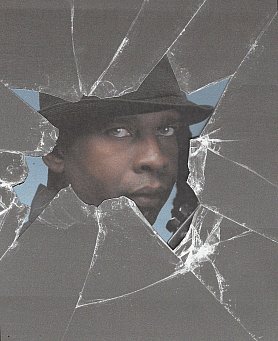
Donald Trump's makeover of the American political landscape was always going to come up in the conversation. And as an articulate voice on black issues Vernon Reid – guitarist with Living Colour – has an amusing if bewildered take on it.
“You know, I'm a huge science fiction and horror fan and this is like living in that. You accept it because it's a reality . . . but the idea that Donald Trump is president? Even now saying it I can barely believe it. An unbelievable reality.
“It's really a weird fulfillment of pretty much our best known song, Cult of Personalty,” he say naming their highly political '90 Grammy-winning hit.
“What else is it but that here right now?”
Living Colour – who play the Powerstation in Auckland on May 11– were the preeminent black hard rock band of the Eighties. Their songs confronted matters of race in America and Reid – founder of the Black Rock Coalition to assist black artists and confront media stereotypes – has been a clear voice in challenging how white rock writers have elevated white artists but marginalised more important black artists.
As he said in a powerful interview at Elsewhere back in '93: “I was privileged to see the Velvet Underground reunion recently – now there is a band whose reputation has been held by the white rock‘n’roll critical Establishment. I think they’re a great band, I really do. But you can’t deny part of the reason they are still viable enough to even make a comeback is because they are part of that hierarchy.
“Now, I see the Isley Brothers – a great band who had rock‘n’roll hits – but I wonder if they’ll ever be accorded their due.”
Living Colour have often struggled to get theirs too because they have been impossible to place in any definable category, something which Reid -- age 58 and widely considered one of the great guitarists of the rock era -- says they always intended but concedes doesn't make them a simple proposition, let alone for anyone to undertake the politics.
“We're like a hard-rock metal jam band or something. We're all over the place,” he laughs.
The first Living Colour – singer Corey Glover, guitarist Reid, bassist Muzz Skillings and drummer Will Calhoun – broke up in '91 but reformed the following year with Doug Wimbush replacing Skillings.
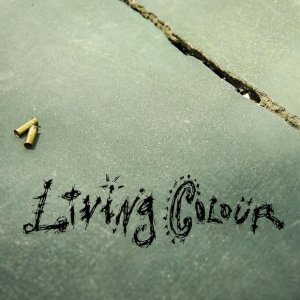 After another hiatus after '95 they got
back together in 2000 and have played and recorded consistently since
then, although members also have various side projects.
After another hiatus after '95 they got
back together in 2000 and have played and recorded consistently since
then, although members also have various side projects.
Their most recent release was the Mixtape EP of last year on which they deliver a timely revisit to Notorious BIG's Who Shot Ya? The song came with a powerful video and also a number of remixes with various rappers (including Chuck D and Black THought)
A new album Shade is expected soon.
More of that soon but first, it is a return visit to New Zealand for Reid, isn't it?
You came down in 2008 for the G-TARanaki guitar festival?
Yeah, that was a lot of fun and I was very saddened when the developer Paul [Martin] passed away. He was a good man and it was a great festival.
But Living Colour have never played here?
Maybe a long time ago, we played Christchurch I think. I remember the food was excellent.
Maybe that was when I spoke to you in '93 but I suspect the nature of politics in your country means you may not want to go home after you've come all this way?
Maybe not, I barely wanted to go home the first time. Yeah it is pretty wild here.
You know, I'm a huge science fiction fan and horror fan and this is like living in that. Well, you accept it because it's a reality . . . but the idea that Donald Trump is president? Even now saying it I can barely believe it. An unbelievable reality.
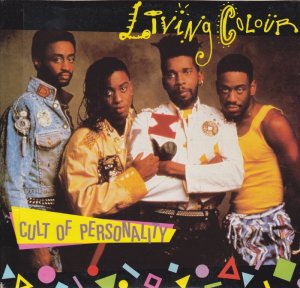 It's really a weird fulfillment of
pretty much our best known song, Cult of Personalty.
It's really a weird fulfillment of
pretty much our best known song, Cult of Personalty.
What else is it but that?
Let's talk music then although I suspect politic will weave back into the discussion. We spoke in '93, and I know we are going a long way back, but let's compare the music landscape then and now. Is it your impression that the music scene – and I'm talking about media outlets like television and the press and radio – is more divided along racial lines now than it was then, or have things merged more?
I think it's hard to come up with anything definitive because anything you come up with will be trumped by other evidence. That's to say there's too much of everything. I feel in society, media is one part but everyone is overwhelmed with everything these days.
Because of that people are going to safe bunkers, they don't want to be challenged by opinions that don't echo theirs, increasingly they don't want to hear music that isn't in their wheelhouse anyway, even though the things that make music great are the collisions between musical styles.
We wouldn't have rock'n'roll without those collisions.
Having said that, to make a hard and fast rule about it is hard. The mixtape culture is huge, mash-ups are still a thing, people are making reference to each other.
So there's a kind of crazy democratisation simultaneously.
On the one hand it's become very tribal and there are different things battling for people's mental space. One thing that is happening is that at the fringes is people are becoming very intolerant . . . and everybody, I mean everybody, is overwhelmed.
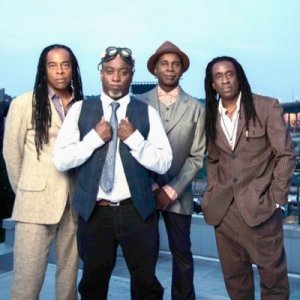 Too much of everything?
Too much of everything?
Yes, too much of everything, too much of a good thing, too much of a bad thing, much too much mediocrity. There was a time when artists would make the record that was a break from everything, that was a common thing, a common theme for a lot of our bands. A good example is [Canadian rock band] Rush. They were a fairly conventional hard rock band and then they made 2112 [in '76], a concept album, and then everything was different.
Or Radiohead, they were an alternative band and then they did OK Computer and it was like 'Whuh?' Nobody knew what to think about that.
So people took risks, real risks, and it was only a question of people being willing to take risks.
I had a Twitter thing about Bruno Mars and he did a whole tribute to Prince. Now Bruno Mars is very, very, very talented, he's an excellent drummer and plays multiple instruments.
But would he ever do a record like Dirty Mind? Or like Controversy where he turns everything upside down?
He's got the talent but does he have that other thing? And that other thing we need now more than ever. I hope he does ,but he could be very comfortable making pop or funk from the Seventies or whatever.
The question he would ask himself might be, 'Will my audience accept this?'. Do you feel the need to please an audience just to reman in the game has also changed the landscape.
I think it has metastasized and become a kind of cancer. The audience is one thing but now social media has made it possible for people to be hateful and mean to you, to write on your Twitter feed, make nasty comments on your YouTube things or whatever.
At the same time you can get a lot of support, but people focus on the negative and the advent of the troll, those heartless and cruel commentator,s is something new.
So would a Bruno Mars stick his neck out the way a Prince or Jimi Hendrix would do when social media can turn around and be hateful? Social media is a kind of social policing, and that is not cool.
People say nasty, snarky hateful things and the audience is armed with all kinds of information they can weaponise. That to me is a real concern.
Let's talk about your audience since 2000 let's say. Have you noticed your audience has changed and become more broad-based in the manner you always hoped, people from across the spectrum?
It has but it's also become very diffuse. We have a lot of fans but they are spread out all over the lace and that's a challenge. (laughs)
I'm always happy to see any young people at all in the audience who are there checking it out because you have to keep renewing your fan base because people can get to a point . . . like the same people who were 100% with you in 1990 will grow up and their tastes change, everything changes. It''s like, 'I was into that at that time but I'm not into that any more'. That is a problem all artists face.
We're kind of weird case because we were a little bit of hard rock, a little bit of prog-rock, a little bit of funk . . . and we always have been and we've never been in the one bag. It's been like that from the very first album. That has been a consistent aspect of us, so we have always woven a bunch of different constituencies together. A metal person is standing with a person who's into hard rock next to a person into funk and a person into jazz . . .
I wouldn't want it any other way. We're like a hard-rock metal jam band or something. We're all over the place.
One thing that's gratifying is that the things we've talked about are very much part of the societal conversation. On the one hand that keeps us relevant, but on the other it's kind of disturbing that a song like Funny Vibe [about racial stereotyping] still has currency. And Open Letter to a Landlord still does, and certainly Cult of Personality really does.
And that is crazy.
You would have hoped people might have moved past such things but in fact it seems they are becoming more entrenched. I know you have the Shade album coming out and we will talk about that, but let's talk about the Mixtape EP . . . to go back to Notorious BIG, that was the mid Nineties. Who Shot Ya? now has a very different meaning with Black Lives Matter and so on. In this part of the world where gun crime is rare, to see the statistics that you put in the video is absolutely shocking. The nine times more likely . . . Corey used to sing it at soundcheck but current event have prompted it?
 The thing about gun violence is that
it's the new act of terrorism going on, that can come from an
ex-boyfriend, an ex-husband terrorising his ex-wife and family, it
could be the cliched disgruntled worker who feels unfulfilled and is
depressed and gets armed.
The thing about gun violence is that
it's the new act of terrorism going on, that can come from an
ex-boyfriend, an ex-husband terrorising his ex-wife and family, it
could be the cliched disgruntled worker who feels unfulfilled and is
depressed and gets armed.
It's also people battling to establish who they are using a weapon to get respect or just to be acknowledged they exist . . . and that's even before we get to the big ticket items of ideology.
Who Shot Ya? really began with Corey singing that and we thought we'd record it but then it turned into this whole other conversation. The whole Shade record is really weird, we started on it a few years back and the time have changed the context of the album to make like a conversation about what has just happened.
I understand you cover Marvin Gaye's Inner City Blues, is that correct?
Yes, we do a cover of that and a bunch of other songs – there's one called Who's That? – and a lot of the record was conceived around the idea of engaging what the blues is in a hard rock/metal context so we got together with a hip-hop producer. So it was a bunch of different careening ideas. It's also in the context of identity as an American. 'What does it mean to be an American?” and what if you are an African-American. That conversation.
We deal with hard realities but also absurdity. There's a moment of looking at this whole situation as a kind of weird, funhouse mirror. It's been a very interesting experience.
Who Shot Ya? has a resonance. What happened to Notorious BIG? He was making a conversation about what happened to Tupac who had been shot. He'd been shot and wounded and Who Shot Ya? was the song that broke their friendship, that was a really funky time.
Because BIG put the song out when Tupac was recovering and he took it personally and that's when the whole East Coast/West Coast scenario started happening. Then you are forced to consider what happened to both of these men, these young men. But then it is in the context of all kinds of shooting crime which outstrips any worries about terrorism. Terrorism is the least likely way you are going to die in America.
The video didn't leave anything off the table and we talk about gun violence with regard to accidental discharge and suicide.
The suicide one is a good point, it's a very inclusive video in that there are white victims and black victims, famous people and ordinary citizens. It's very powerful.
One of the things that was crucial was listing all these different people. The idea that John Lennon and Dimebag Darryl died because of gun violence? It's crazy when you look at it.
We also had [alleged JFK assassin, shot before going to court] Lee Harvey Oswald in there because he deserved a trial.
Vernon, I'm going to run out of time so quickly then . . . when is the Shade album out?
The date we have is June right now.
I want to ask about the Black Rock Coalition, still as essential as ever?
It still hangs on by its bloody fingernails. (laughs)
And I have been a big fan of James Blood Ulmer and Jamaaladeen Tacuma whom you've worked with. They are getting quite old now – Blood is in his 70s – but are they still out there playing?
Yeah, I see them around a bit. Last time I talked with Blood he told me he wanted to do a country and western album, so let's see how that turns out. (laughs)
Maybe there's a new version of his Are You Glad to Be In America? because that has relevance.
Oh yeah, that's the question. (laughs)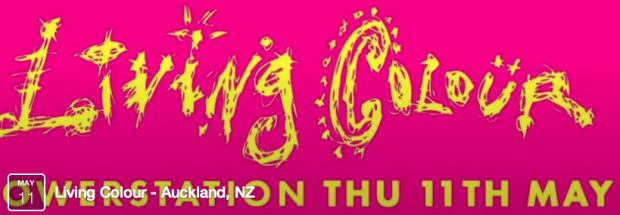

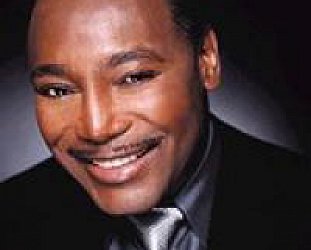
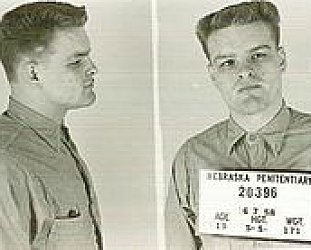
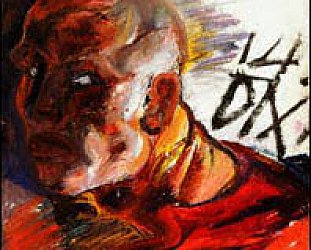
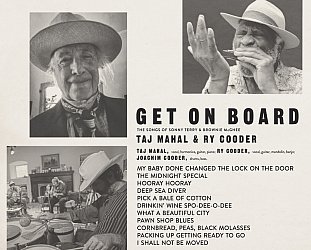
Mike Pearson - Apr 14, 2017
Great interview and a great band. I have most of Vernon's solo albums as well. Great guitar player
SaveMike Pearson - Jun 15, 2021
Four years and two months later, I read the article again, thinking, I have read this before somewhere, but I still read it. Great interview. Did you add the video of Who Shot Ya since 2017? Great band and Vernon is one of my most favourite guitar players.
Savepost a comment